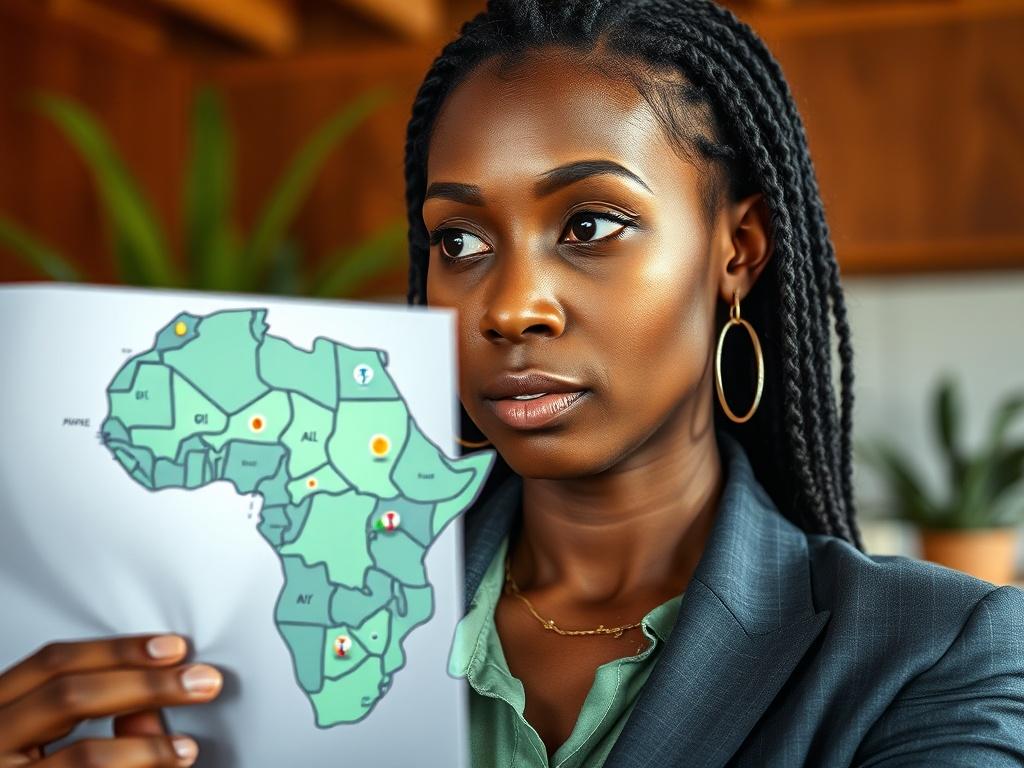
Africa is home to a wealth of natural resources, from oil and minerals to forests and water bodies, making it a focal point for global resource governance discussions. However, understanding the intricacies of resource governance in Africa requires a deep dive into the complex interplay of local, national, and international factors that shape how these resources are managed. In this blog post, we will explore the complexities surrounding resource governance in Africa, shedding light on the various dynamics that influence decision-making and resource allocation across the continent.
As we delve into this critical subject, we will also examine the key challenges faced in Africa's resource management, such as corruption, inadequate infrastructure, and conflicting interests among stakeholders. Furthermore, we will highlight the essential role of local communities in shaping resource governance strategies, emphasizing how grassroots involvement can lead to more equitable and sustainable outcomes. Join us as we uncover the multifaceted nature of resource governance in Africa and consider the implications for the continent's future development.
Exploring the complexities of resource governance in Africa
Resource governance in Africa embodies a dynamic interplay of political, economic, and social factors that influence the management of the continent's vast natural resources. From minerals like gold and diamonds to oil and gas reserves, the extraction and allocation of these resources often reflect deeper historical and systemic issues. Each African nation grapples with unique regulatory frameworks, yet they share common challenges, such as corruption, conflict, and economic dependency on resource exports. As stakeholders ranging from governments, multinational corporations, and civil society groups engage in resource governance, their interactions shape policies that can either facilitate sustainable development or perpetuate a cycle of exploitation.
The intricacies of resource governance also extend to environmental considerations, where the balance between economic gains and ecological protection frequently hinges on effective policy implementation. For instance, the over-extraction of resources can lead to environmental degradation, affecting local communities and biodiversity. Furthermore, the continent's diverse cultural landscapes mean that traditional practices and local knowledge play significant roles in resource management. Exploring the complexities of resource governance in Africa reveals a multifaceted system that requires innovative solutions, strong institutional frameworks, and active participation from all layers of society to ensure equitable and sustainable resource management.
Key challenges faced in Africa's resource management
Africa's resource management presents a unique array of challenges that hinder sustainable development. Corruption often permeates governance structures, leading to misallocation and misuse of valuable resources. Governments may prioritize short-term gains over long-term environmental sustainability, exacerbating conflicts over resource distribution. Moreover, inadequate regulatory frameworks leave many resource-rich regions vulnerable to exploitation by multinational companies, which often prioritize profit over the well-being of local communities. These issues create a cycle of distrust between governments and citizens, undermining efforts to establish effective governance in the resource sector.
Another significant challenge is the lack of infrastructure to support efficient resource management. Many African nations grapple with poorly developed transport and energy systems, which complicate the extraction and distribution of resources. Limited access to technology further hampers the ability to implement sustainable practices. Additionally, climate change poses an existential threat, impacting agricultural outputs and water availability. In the face of these intersecting challenges, Africa must develop innovative strategies and collaborative approaches to ensure equitable and responsible resource governance, securing both economic benefits and environmental health for future generations.
The role of local communities in shaping resource governance strategies
Local communities play a pivotal role in shaping resource governance strategies across Africa. Their intimate knowledge of local ecosystems and social dynamics allows them to contribute valuable insights into sustainable resource management practices. Engaging local populations in decision-making processes not only empowers them but also fosters a sense of ownership and responsibility toward resource conservation. By leveraging traditional ecological knowledge and practices, communities can propose innovative solutions that reflect their unique circumstances, ensuring that governance strategies align with local needs and aspirations.
Moreover, collaboration between local communities and governmental or non-governmental organizations enhances the effectiveness of resource governance. When communities actively participate in the development and implementation of governance frameworks, they can advocate for their rights and sustainable practices. This collaboration also helps bridge the gap between grassroots initiatives and higher-level policy-making. As local voices become integral to the governance process, they can drive accountability and transparency while also mitigating conflicts over resource use. Emphasizing local community involvement ultimately leads to more resilient and equitable resource governance systems in Africa.